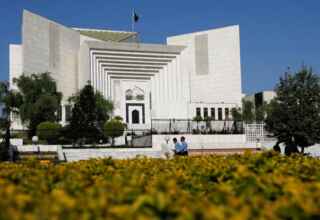
Minister for Finance and Revenue Senator Ishaq Dar Wednesday introduced the Finance Bill 2023 or the “mini-budget” in the National Assembly as the government seeks to fulfil the prerequisites for unlocking the $1.1 billion International Monetary Fund (IMF) loan.
Running against time to pacify the IMF for the revival of the bailout programme, the government had last night approved hiking the General Sales Tax GST rate from 17 to 18% and increasing the Federal Excise Duty (FED) on cigarettes in order to fetch an additional Rs115 billion out of Rs170 billion agreed to by Pakistan in line with the IMF conditions.
The finance minister began his address by criticizing the tenure of the Pakistan Tehreek-e-Insaf (PTI) government, arguing that a national committee be formed to investigate the failures that have cost the country’s economy.
Background
The National Assembly session comes as Pakistan looks to desperately revive its stalled IMF bailout programme as talks resumed virtually resumed on Monday. The two sides are now looking to reach an agreement that will unlock funding critical to keep the cash-strapped country afloat.
The two could not reach a deal last week and a visiting IMF delegation departed Islamabad after 10 days of talks but said negotiations would continue. Pakistan is in dire need of funds as it battles a wrenching economic crisis.
Proposals
- Govt has increased GST on luxury items from 17% to 25%
- FDE on business and first-class air tickets to now be Rs20,000 or 50% — whichever is higher
- 10% withholding adjustable advance income tax to be imposed on bills of wedding functions
- Increase in FDE on cigarettes, soft and sugary drinks







